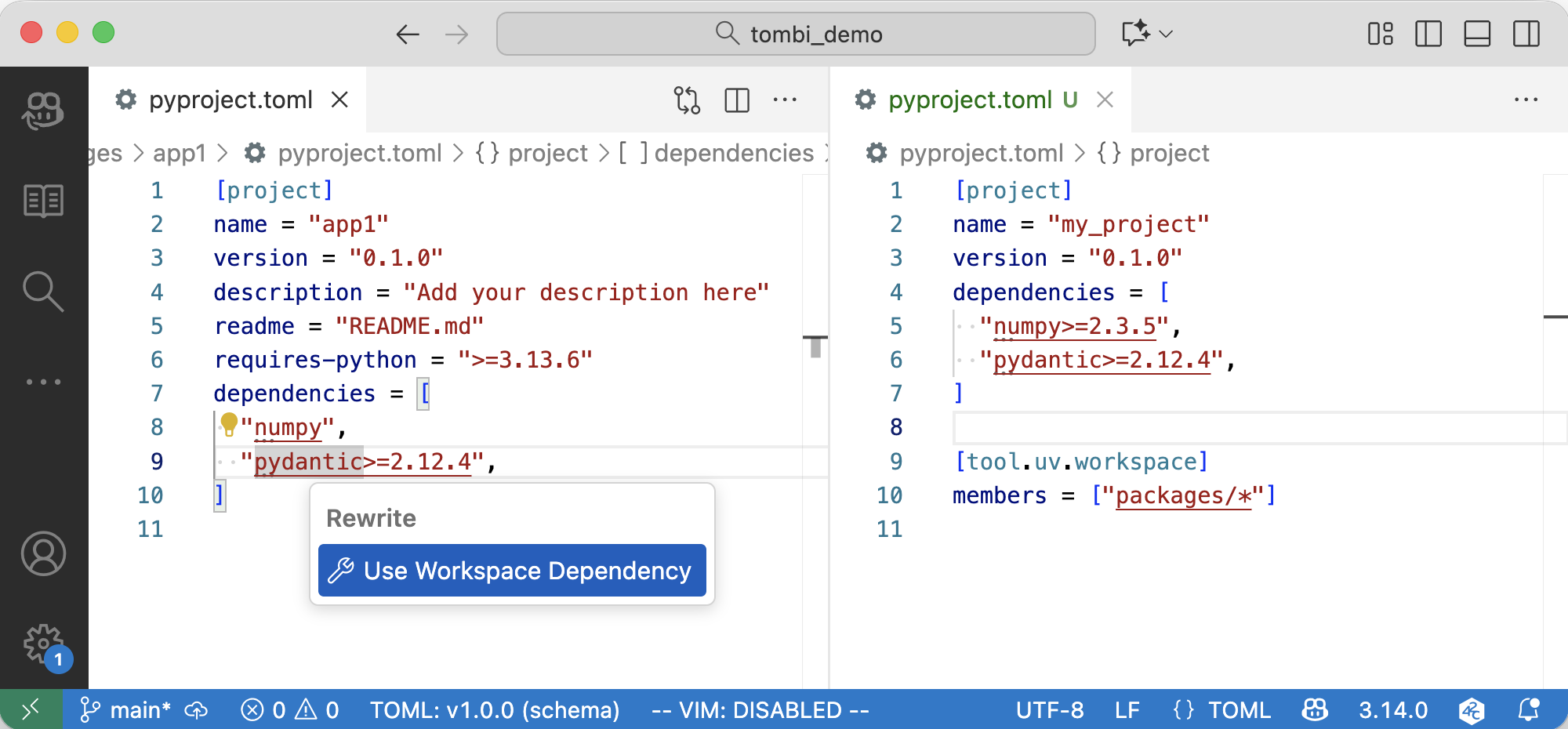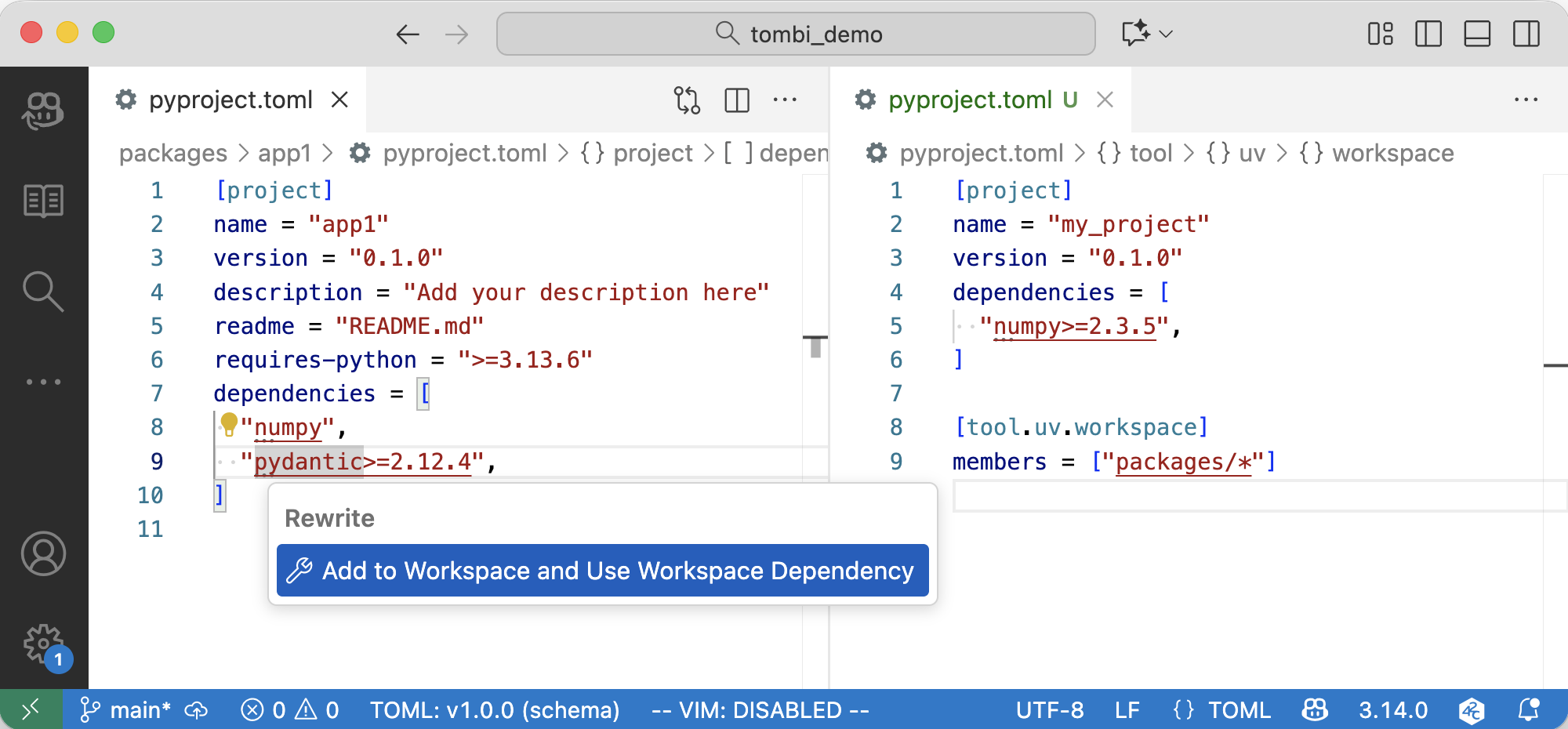uv Extension
Tombi provides enhanced features for Python projects using uv, making Python development experience even better 🐍
Experimentally, we provide additional features when editing pyproject.toml files.
Since uv is a third-party library and is provided by Tombi at its arbitrary discretion, please use it as an experimental feature with the understanding that support may be discontinued in the future.
Supported Features
Go to Definition
For example, suppose you have a pyproject.toml like the one below:
Go to package definition from dependencies
[project]
name = "albatross"
version = "0.1.0"
requires-python = ">=3.12"
dependencies = ["bird-feeder", "tqdm>=4,<5"]
[tool.uv.sources]
bird-feeder = { workspace = true }In this case, when your cursor is on workspace, executing "Go to Definition" will navigate you to the the package's pyproject.toml managed by the workspace.
If you consistently want to navigate to the workspace's pyproject.toml where the workspace is defined, use "Go to Declaration".
Go to Declaration
[project]
name = "albatross"
version = "0.1.0"
dependencies = ["bird-feeder", "tqdm>=4,<5"]
[tool.uv.sources]
bird-feeder = { workspace = true }In this case, when your cursor is on workspace, executing "Go to Declaration" will navigate you to the workspace definition in the workspace's pyproject.toml file.
Go to Declaration also works when the cursor is placed on the dependency string itself (e.g.: "bird-feeder").
If the package comes from tool.uv.sources with workspace = true, the command jumps to the member entry in the workspace pyproject.toml, letting you inspect which pattern pulled the project into the workspace.
Code Actions
When editing member pyproject.toml files, additional refactor actions help you converge on workspace-managed dependencies.
Use Workspace Dependency
If the workspace already pins the dependency, select "Use Workspace Dependency" to strip the version requirement (and keep extras) so the member follows the workspace definition.

The action also works inside [project.optional-dependencies.*] groups.
Add to Workspace and Use Workspace Dependency
When the workspace has not registered the dependency yet, this action adds the current versioned requirement to the workspace's [project.dependencies] array and rewrites the member entry to use the shared dependency.

Document Links
The extension annotates key uv metadata with document links so you can jump to the right file or website in one click:
- Entries in
[tool.uv.workspace.members](and matches found via globs) open the associated member project'spyproject.toml. - Sources declared under
[tool.uv.sources]withworkspace = trueexpose links to both the member manifest and the workspace root configuration. - Dependency arrays in
[project.dependencies],[project.optional-dependencies.*], and[dependency-groups.*]link to local workspace packages when available, or fall back to the package page on PyPI.